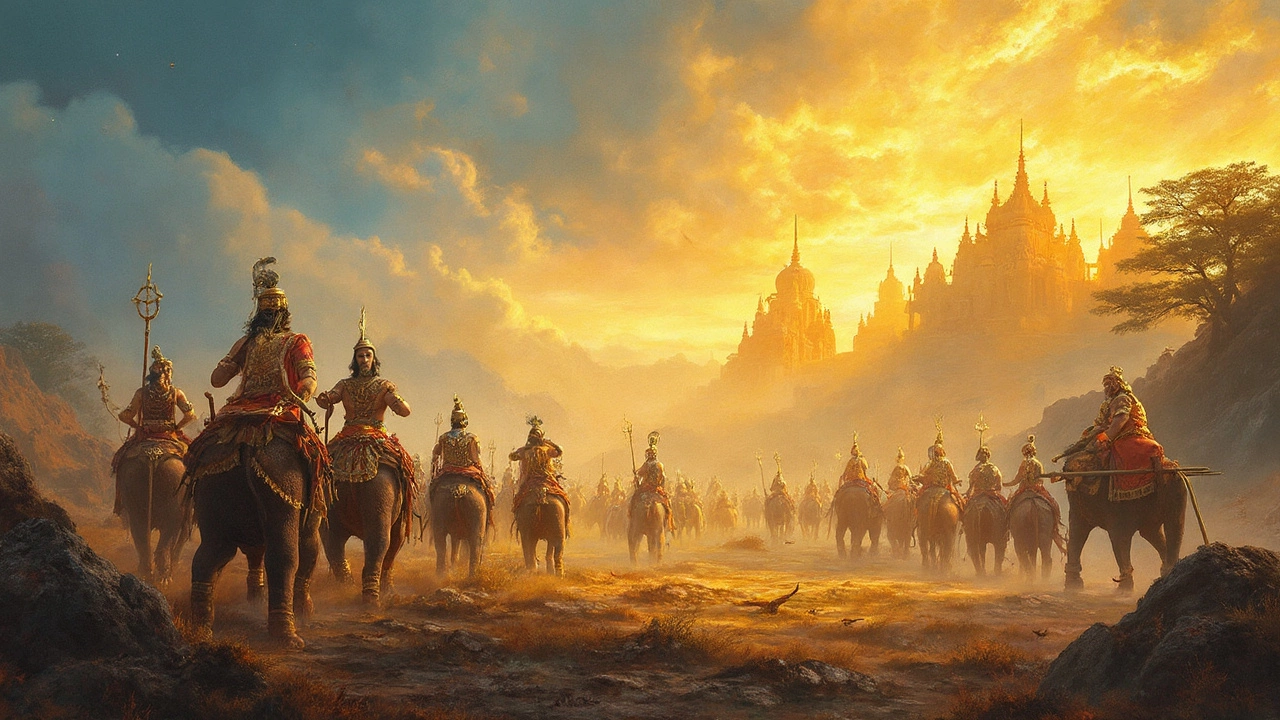Epic Poetry: What It Is and Why It Matters
Ever wonder why some poems feel like a whole adventure? That’s epic poetry for you. It’s a long story told in verse, packed with heroes, battles, and big ideas. In India, epics aren’t just old books; they shape language, festivals, and even daily jokes.
When you read an epic, you get more than a plot. You meet a world of values, myths, and moral lessons that still echo today. That’s why we love sharing epic poems on this site – they give us a boost of attitude and inspiration.
Key Features of an Epic Poem
First, an epic is usually long. It can stretch over hundreds of pages, but the length isn’t the main point. What matters is the scope: the story covers big events that affect whole nations or gods.
Second, the hero is larger‑than‑life. Think of Rama, Arjuna, or more modern figures like Mahatma Gandhi in poetic retellings. Their deeds illustrate courage, sacrifice, and the fight between good and bad.
Third, the poem mixes the human and the divine. Gods show up, intervene, or judge the action. This mix adds drama and lets the writer explore spiritual ideas without getting preachy.
Fourth, the language is rhythmic. Epic poets use a steady meter or repeated patterns so the story rolls like a song. That rhythm helps listeners remember lines and recite them at festivals.
Lastly, an epic carries a moral or cultural message. Whether it’s about duty, love, or justice, the story leaves a takeaway that people discuss for generations.
Popular Indian Epic Poems You Should Know
The most famous Indian epic is the Mahabharata. It’s a massive saga about a family feud, a great war, and the famous Bhagavad Gita dialogue. If you skim the first few chapters, you’ll meet characters like Krishna and Arjuna, whose choices still inspire debates.
Another cornerstone is the Ramayana. This tale follows Prince Rama’s quest to rescue his wife Sita from the demon king Ravana. The story teaches loyalty, honor, and the power of devotion.
Beyond these, the Vedas contain poetic hymns that read like mini‑epics, celebrating creation and cosmic order. The Harivamsa adds extra adventures of Krishna, while regional epics like the Silappatikaram from Tamil literature showcase local heroes and culture.
If you’re looking for something modern, try the epic poem Jana Gana Mana style verses that blend patriotic feelings with contemporary language. They show how the epic form can adapt to today’s issues.
Want to enjoy these epics without reading a thousand pages? Look for short retellings, graphic adaptations, or audio narrations. Many YouTube channels and podcasts break down the stories into bite‑size episodes that fit a commute.
Feeling creative? Try writing your own epic mini‑story. Pick a big theme—like friendship or justice—choose a central hero, and write in a simple rhythmic pattern. You don’t need ancient Sanskrit; plain English works as long as the story feels grand.
Remember, epic poetry isn’t just for scholars. It’s a vibrant tool that lets you feel the pulse of Indian history, boost your attitude, and share powerful messages with friends. Dive in, pick a favorite, and let the verses spark your own epic adventure.
The world's longest poem isn't just about its length; it's a masterpiece filled with emotion and culture. Delving into the fascinating story of 'Mahabharata,' one discovers a blend of human emotions, tragedy, and wisdom that's captivating to readers around the globe. This epic poem is not just an Indian treasure but a universal narrative that resonates with anyone interested in deep, soulful poetry. It tells tales of war, loss, and the complexity of human relationships—a true reflection of life's ups and downs. Discover what makes it the longest and how it continues to impact literature worldwide.
More